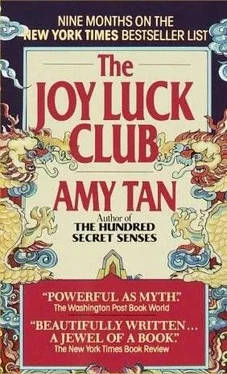I also found out why I should never reveal "why" to others. A little knowledge withheld is a great advantage one should store for future use. That is the power of chess. It is a game of secrets in which one must show and never tell.
I loved the secrets I found within the sixty-four black and white squares. I carefully drew a handmade chessboard and pinned it to the wall next to my bed, where at night I would stare for hours at imaginary battles. Soon I no longer lost any games or Life Savers, but I lost my adversaries. Winston and Vincent decided they were more interested in roaming the streets after school in their Hopalong Cassidy cowboy hats.
On a cold spring afternoon, while walking home from school, I detoured through the playground at the end of our alley. I saw a group of old men, two seated across a folding table playing a game of chess, others smoking pipes, eating peanuts, and watching. I ran home and grabbed Vincent's chess set, which was bound in a cardboard box with rubber bands. I also carefully selected two prized rolls of Life Savers. I came back to the park and approached a man who was observing the game.
"Want to play?" I asked him. His face widened with surprise and he grinned as he looked at the box under my arm.
"Little sister, been a long time since I play with dolls," he said, smiling benevolently. I quickly put the box down next to him on the bench and displayed my retort.
Lau Po, as he allowed me to call him, turned out to be a much better player than my brothers. I lost many games and many Life Savers. But over the weeks, with each diminishing roll of candies, I added new secrets. Lau Po gave me the names. The Double Attack from the East and West Shores. Throwing Stones on the Drowning Man. The Sudden Meeting of the Clan. The Surprise from the Sleeping Guard. The Humble Servant Who Kills the King. Sand in the Eyes of Advancing Forces. A Double Killing Without Blood.
There were also the fine points of chess etiquette. Keep captured men in neat rows, as well-tended prisoners. Never announce "Check" with vanity, lest someone with an unseen sword slit your throat. Never hurl pieces into the sandbox after you have lost a game, because then you must find them again, by yourself, after apologizing to all around you. By the end of the summer, Lau Po had taught me all he knew, and I had become a better chess player.
A small weekend crowd of Chinese people and tourists would gather as I played and defeated my opponents one by one. My mother would join the crowds during these outdoor exhibition games. She sat proudly on the bench, telling my admirers with proper Chinese humility, "Is luck."
A man who watched me play in the park suggested that my mother allow me to play in local chess tournaments. My mother smiled graciously, an answer that meant nothing. I desperately wanted to go, but I bit back my tongue. I knew she would not let me play among strangers. So as we walked home I said in a small voice that I didn't want to play in the local tournament. They would have American rules. If I lost, I would bring shame on my family.
"Is shame you fall down nobody push you," said my mother.
During my first tournament, my mother sat with me in the front row as I waited for my turn. I frequently bounced my legs to unstick them from the cold metal seat of the folding chair. When my name was called, I leapt up. My mother unwrapped something in her lap. It was her chang , a small tablet of red jade which held the sun's fire. "Is luck," she whispered, and tucked it into my dress pocket. I turned to my opponent, a fifteen-year-old boy from Oakland. He looked at me, wrinkling his nose.
As I began to play, the boy disappeared, the color ran out of the room, and I saw only my white pieces and his black ones waiting on the other side. A light wind began blowing past my ears. It whispered secrets only I could hear.
"Blow from the South," it murmured. "The wind leaves no trail." I saw a clear path, the traps to avoid. The crowd rustled. "Shhh! Shhh!" said the corners of the room. The wind blew stronger. "Throw sand from the East to distract him." The knight came forward ready for the sacrifice. The wind hissed, louder and louder. "Blow, blow, blow. He cannot see. He is blind now. Make him lean away from the wind so he is easier to knock down."
"Check," I said, as the wind roared with laughter. The wind died down to little puffs, my own breath.
My mother placed my first trophy next to a new plastic chess set that the neighborhood Tao society had given to me. As she wiped each piece with a soft cloth, she said, "Next time win more, lose less."
"Ma, it's not how many pieces you lose," I said. "Sometimes you need to lose pieces to get ahead."
"Better to lose less, see if you really need."
At the next tournament, I won again, but it was my mother who wore the triumphant grin.
"Lost eight piece this time. Last time was eleven. What I tell you? Better off lose less!" I was annoyed, but I couldn't say anything.
I attended more tournaments, each one farther away from home. I won all games, in all divisions. The Chinese bakery downstairs from our flat displayed my growing collection of trophies in its window, amidst the dust-covered cakes that were never picked up. The day after I won an important regional tournament, the window encased a fresh sheet cake with whipped-cream frosting and red script saying, "Congratulations, Waverly Jong, Chinatown Chess Champion." Soon after that, a flower shop, headstone engraver, and funeral parlor offered to sponsor me in national tournaments. That's when my mother decided I no longer had to do the dishes. Winston and Vincent had to do my chores.
"Why does she get to play and we do all the work," complained Vincent.
"Is new American rules," said my mother. "Meimei play, squeeze all her brains out for win chess. You play, worth squeeze towel."
By my ninth birthday, I was a national chess champion. I was still some 429 points away from grand-master status, but I was touted as the Great American Hope, a child prodigy and a girl to boot. They ran a photo of me in Life magazine next to a quote in which Bobby Fischer said, "There will never be a woman grand master." "Your move, Bobby," said the caption.
The day they took the magazine picture I wore neatly plaited braids clipped with plastic barrettes trimmed with rhinestones. I was playing in a large high school auditorium that echoed with phlegmy coughs and the squeaky rubber knobs of chair legs sliding across freshly waxed wooden floors. Seated across from me was an American man, about the same age as Lau Po, maybe fifty. I remember that his sweaty brow seemed to weep at my every move. He wore a dark, malodorous suit. One of his pockets was stuffed with a great white kerchief on which he wiped his palm before sweeping his hand over the chosen chess piece with great flourish.
In my crisp pink-and-white dress with scratchy lace at the neck, one of two my mother had sewn for these special occasions, I would clasp my hands under my chin, the delicate points of my elbows poised lightly on the table in the manner my mother had shown me for posing for the press. I would swing my patent leather shoes back and forth like an impatient child riding on a school bus. Then I would pause, suck in my lips, twirl my chosen piece in midair as if undecided, and then firmly plant it in its new threatening place, with a triumphant smile thrown back at my opponent for good measure.
I no longer played in the alley of Waverly Place. I never visited the playground where the pigeons and old men gathered. I went to school, then directly home to learn new chess secrets, cleverly concealed advantages, more escape routes.
But I found it difficult to concentrate at home. My mother had a habit of standing over me while I plotted out my games. I think she thought of herself as my protective ally. Her lips would be sealed tight, and after each move I made, a soft "Hmmmmph" would escape from her nose.
Читать дальше












